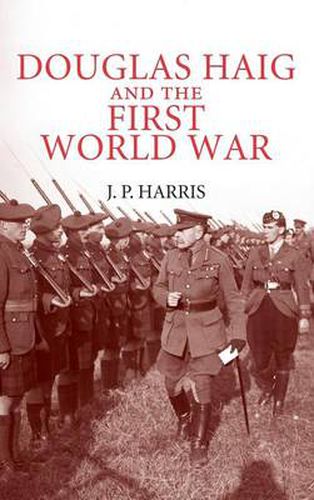Readings Newsletter
Become a Readings Member to make your shopping experience even easier.
Sign in or sign up for free!
You’re not far away from qualifying for FREE standard shipping within Australia
You’ve qualified for FREE standard shipping within Australia
The cart is loading…






From December 1915 until the armistice of November 1918, Sir Douglas Haig was commander-in-chief of the largest army his country had ever put into the field. He has been portrayed as both an incompetent ‘butcher and bungler’ and a clear-sighted, imperturbable ‘architect of victory’. However, in this magisterial account, J. P. Harris dispels such stereotypes. A dedicated military professional, Haig nevertheless found it difficult to adjust to the unprecedented conditions of the Western Front. His capacity to ‘read’ battles and broader strategic situations often proved poor and he bears much responsibility for British losses 1915-17 that were excessive in relation to the results achieved. By late 1917 his own faith in ultimate victory had become so badly shaken that he advocated a compromise peace. However, after surviving the German spring offensives of 1918, he played a vital role in the campaign that finally broke the German army.
$9.00 standard shipping within Australia
FREE standard shipping within Australia for orders over $100.00
Express & International shipping calculated at checkout
From December 1915 until the armistice of November 1918, Sir Douglas Haig was commander-in-chief of the largest army his country had ever put into the field. He has been portrayed as both an incompetent ‘butcher and bungler’ and a clear-sighted, imperturbable ‘architect of victory’. However, in this magisterial account, J. P. Harris dispels such stereotypes. A dedicated military professional, Haig nevertheless found it difficult to adjust to the unprecedented conditions of the Western Front. His capacity to ‘read’ battles and broader strategic situations often proved poor and he bears much responsibility for British losses 1915-17 that were excessive in relation to the results achieved. By late 1917 his own faith in ultimate victory had become so badly shaken that he advocated a compromise peace. However, after surviving the German spring offensives of 1918, he played a vital role in the campaign that finally broke the German army.